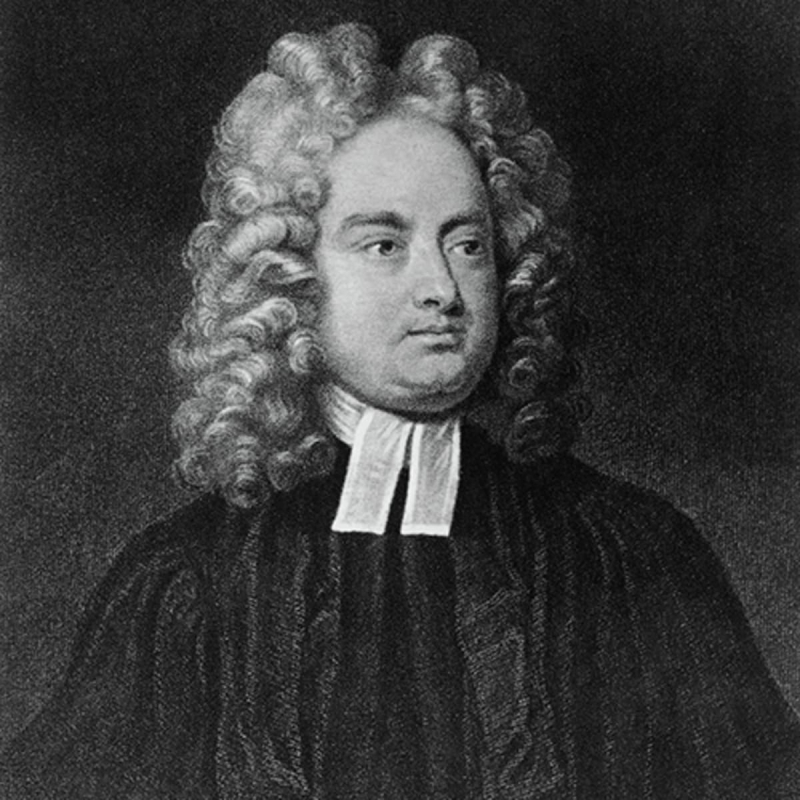Some of Jonathan Swift's best works was in support of the Irish
Jonathan Swift was born in Dublin, although he spent the majority of his life—including his formative years—in England. Before the fall of the Tory government, Swift hoped that his services would be rewarded with a church appointment in England. However, Queen Anne appeared to have taken a dislike to Swift and thwarted these efforts. Her dislike has been attributed to A Tale of a Tub, which she thought blasphemous, compounded by The Windsor Prophecy, where Swift, with a surprising lack of tact, advised the Queen on which of her bedchamber ladies she should and should not trust.
The best position his friends could secure for him was the Deanery of St Patrick's; this was not in the Queen's gift, and Anne, who could be a bitter enemy, made it clear that Swift would not have received the preferment if she could have prevented it. With the return of the Whigs, Swift's best move was to leave England and he returned to Ireland in disappointment, a virtual exile, to live "like a rat in a hole". He returned to Ireland and started writing in support of several Irish causes after his hopes for a major position in the church failed. After reading "Proposal for the Universal Use of Irish Manufacture," "Drake's Letters," and "A Modest Proposal," he firmly embraced Irish nationalism.
But this wasn't a good thing. The Government made an effort to intimidate him, and in 1720, his printer was found guilty of seditious libel. The fact that this constituted a crime indicated that the activity in question was hostile to the established order. Because the works were published under a pseudonym but were generally recognized as being by Swift nonetheless, he was not found guilty. Some of Jonathan Swift's best work was in support of the Irish






